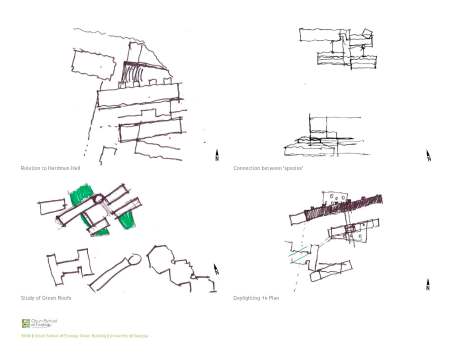Human ecology is an interdisciplinary and transdisciplinary study of the relationship between humans and their natural, social, and built environments.The philosophy and study of human ecology has a diffuse history with advancements in ecology, geography, sociology, psychology, anthropology, zoology, epidemiology, public health, and home. Barrett, Odum Professor of Ecology at the University. BIOGRAPHICAL MEMOIRS of Georgia, was published after Odum's death (at the age of 88). Fundamentals of Ecology was ranked first in a survey of the membership of the. Colleagues, and students, led to the creation of several gifts by Gene that.
Fundamentals of Soil Ecology, 3rd Edition, offers a holistic approach to soil biology and ecosystem function, providing students and ecosystem researchers with a greater understanding of the central roles that soils play in ecosystem development and function. The text emphasizes the increasing importance of soils as the organizing center for all terrestrial ecosystems and provides an overview of theory and practice in soil ecology, both from an ecosystem and evolutionary biology point of view.

This new edition is fully updated, including an expanded treatment of microbial ecology and new sections on advances in molecular techniques and climate change research. These updates make this edition an essential resource for researchers and students in soil ecology and microbiology.
Key Features. Historical Overview of Soil Science and the Intersection of Soil and Ecology 2. Primary Production Processes in Soils: Roots and Rhizosphere Associates 3. Secondary Production: Activities and Functions of Heterotrophic Organisms-Microbes 4.

Secondary Production: Activities and Functions of Heterotrophic Organisms-The Soil Fauna 5. Decomposition and Nutrient Cycling 6. Soil Foodwebs: Detritivory and Microbivory in Soils 7. Soil Biodiversity and Aboveground-Belowground Linkages 8. Future Developments in Soil Ecology 9.
Laboratory and Field Exercises in Soil Ecology. Coleman has been a lifelong soil ecologist with interests in soil biodiversity and biogeochemical cycling. He conducted research at the Savannah River Ecology Laboratory of the University of Georgia (1965-1971), and the Natural Resource Ecology Laboratory, Colorado State University (1972-1985). While there, he also progressed through the ranks from Assistant to Associate and Full Professor of Zoology and Entomology at CSU. From 1985 he has been a Distinguished Research Professor of Ecology in the Institute of Ecology and later the Odum School of Ecology of the University of Georgia. He has been Professor Emeritus since 2005. During the academic year of 1979-1980, Coleman was visiting Research Fellow at the Department of Scientific and Industrial Research (DSIR) Institute of Nuclear Sciences and Soil Bureau in Lower Hutt, New Zealand.
David received the Distinguished Service award from the Soil Ecology Society in 1999 and the Distinguished Ecosystem Scientist award from the Natural Resource Ecology Laboratory in 2002. He served on several advisory panels on Ecology and Ecosystems with the National Science Foundation and on an advisory panel on Alternative Agriculture for the National Research Council. His research has concentrated on microbial-faunal interactions in detrital food webs in agroecosystems, e.g, Horseshoe Bend, near Athens, and in forested watersheds at the Coweeta Hydrologic Laboratory in western North Carolina, as part of the Coweeta Long Term Ecological Research (LTER) study. From 1996-2002 he was co-lead PI on the Coweeta LTER project.
He was also a McMaster Visiting Research Fellow at CSIRO, Adelaide, South Australia, January-April 2006. David served as co-Chief Editor of Soil Biology and Biochemistry from 1998 to 2010 and serves as its Review Editor currently.
He serves on editorial boards of several other soil biology journals. He has published over 300 refereed journal articles and books and is senior author of Fundamentals of Soil Ecology (second edition, 2004), and the author of Big Ecology: The Emergence of Ecosystem Science (2010). Download windows 7 installation usb. Mac Callaham is a Research Ecologist with the USDA Forest Service’s Southern Research Station in Athens, Georgia. He has 25 years’ experience of working in soil ecology with projects ranging from agroecology to ecotoxicology to grassland and forest restoration and management.
Fundamentals Of Ecology Odum Pdf
Following graduate school at Kansas State University, he held post-doctoral positions at Oak Ridge National Laboratory (2000-01), and with the USDA Forest Service at Clemson University (2001-03). In 2005, Callaham became a Team Leader within the Center for Forest Disturbance Science, a unit of the Forest Service’s Southern Research Station In 2005, Callaham was awarded the Southern Research Station Director’s Award for Early Career Scientists. Having long been interested in international research, Callaham was awarded a Fulbright Scholarship in 2010 to participate in research in southern Brazil with a focus on restoration of Atlantic rainforest ecosystems. In 2014, he received a Visiting Professorship for Senior International Scientists appointment from the Chinese Academy of Sciences to instruct a course on soil ecology at the Northeast Institute for Agroecology and Geography in Changchun, China.
Callaham serves on the editorial board for Applied Soil Ecology, and had been guest editor for peer-reviewed special issues of the journals Pedobiologia, Applied Soil Ecology and Restoration Ecology. Dac Crossley is a Professor Emeritus of Ecology at the Odum School of Ecology, University of Georgia, Athens, USA. He served as Director the Graduate Program in Ecology, at the Institute of Ecology at UGA since its inception.
He was Principal Investigator of the Coweeta Long-Term Ecological Research site in North Carolina. He has served as editor and reviewer of numerous ecological and entomological journals. He currently serves as an associate curator at the Georgia Museum of Natural History where he curates the soil mite collection.